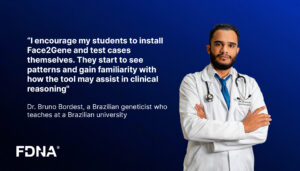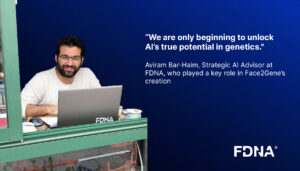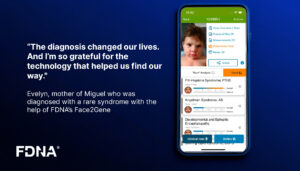January 8, 2019
Spiegel
The article examines how FDNA’s advanced AI technology is transforming the diagnosis of rare hereditary diseases. FDNA’s platform utilizes facial recognition algorithms to analyze patients’ facial features, identifying subtle phenotypic markers indicative of various genetic disorders. By comparing these markers against a comprehensive database, the AI can expedite the diagnosis of rare hereditary diseases with remarkable accuracy and speed, which traditional methods may miss. This breakthrough aids in early detection and personalized treatment plans, improving patient outcomes. The article emphasizes the revolutionary impact of FDNA’s AI technology in the medical field, particularly in diagnosing and managing rare genetic conditions.


